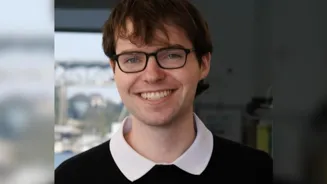In a multi-million dollar deal, Meta has hired an AI researcher, Matt Deitke after he rejected the tech giant’s initial offer of $125 million. Mark Zuckerberg has personally met Deitke and offered a higher
package of $250 million, including a revised four-year compensation package.
To lead in the AI race for grabbing the largest pie in the hot field, Meta has extensively in the poaching mode to offer million-dollar packages to AI researchers and experts working at competitors like OpenAI, Anthropic, Microsoft, and AI startups.
Who Is Matt Deitke?
Matt Deitke is an AI researcher currently working at Meta’s Superintelligence Lab since July 2025. Before joining Meta, he co-founded a company named Vercept, where he worked for nine months. Prior to that, he spent over five years at the Allen Institute for AI (AI2) as a researcher and engineer, contributing to cutting-edge work in artificial intelligence.
Academically, Matt holds a PhD in Computer Science from the University of Washington, which he completed in 2024. He also earned his Bachelor’s degree in Computer Science from the same university in 2023. With a strong foundation in AI research and practical experience across both startups and leading AI labs, Matt is positioned as an emerging voice in the field of artificial general intelligence and superintelligence systems.
Andrew Tulloch Turns Down Meta’s Over $1 Billion Offer
Andrew Tulloch has made headlines by turning down an almost $1 billion offer, a nine-figure salary.
Andrew Tulloch is a machine learning expert and co-founder of Thinking Machines Lab, an AI company led by Mira Murati that aims to push the boundaries of artificial intelligence beyond chatbots.
He recently made headlines after The Wall Street Journal reported that he turned down a staggering nine-figure offer from Meta. The Journal noted that even in Silicon Valley—where massive paychecks are common—it’s rare for someone to walk away from such a deal.
Sources familiar with the matter said the $1.5 billion offer included bonuses and stock-based compensation, making the decision all the more surprising.














